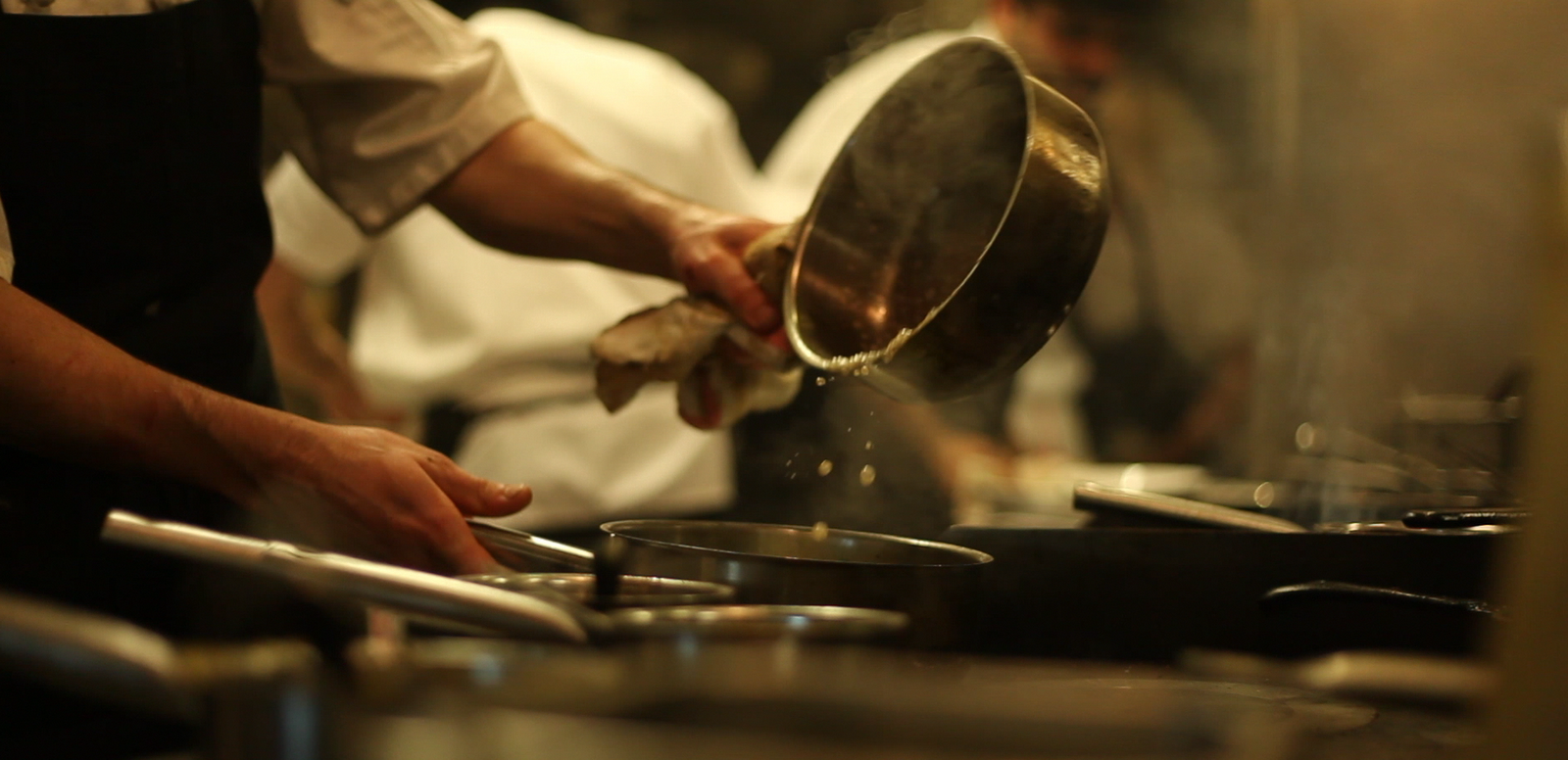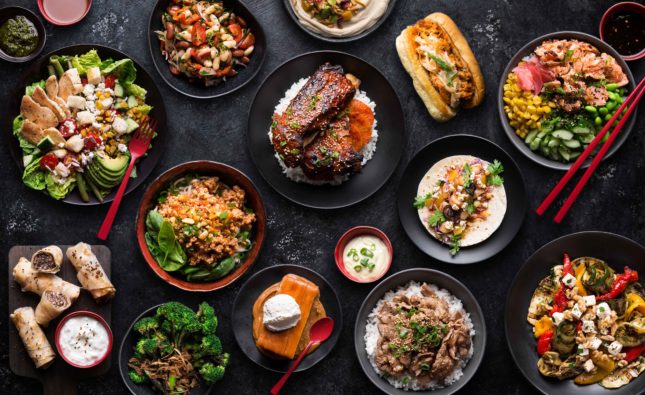I spent the summers of my youth and most of my university days in a kitchen, and have since done my fair share of work on both sides of the passe. A kitchen is an unforgiving place, and unless you’ve worked in a kitchen, it’s hard to understand the chaotic dance of a meal rush. Secret languages, personality clashes, and thick-as-blood solidarity are the foundation to every kitchen operation.
Everyone in the industry has a story of a head chef – they are notoriously egocentric, single-minded, aggressive individuals. However, without these attributes, the kitchen would eat them alive. Your head chef is someone you always reply to, usually with a loud, clear “yes chef,” or “Oui Chef,” if he is French or slightly pretentious. Or both. Marco Pierre White famously said everyone wears butcher’s aprons in his kitchen, including him, because they were all still learning. The difference was, Marco was learning perfection, his commis chef’s were learning the basics.
I remember being a spotty faced teenager working in a large, busy pub as a kitchen porter (dishwasher) and being handed tin trays straight from the oven that were so hot that they burnt your fingerprints off – or only finding out the chef had slipped a kitchen knife into the sink when the dirty water went pink. I had thick, angry burn marks across my forearms from the oven and don’t even get me started on chafing. All I can say is thank God for corn starch.
It is not unheard of for a young, newly hired commis to come into the kitchen from the restaurant down the street and claim he has been sent to pick up three bags of H2O powder. He would leave red-faced and embarrassed, but with a lesson that the kitchen is a rambunctious, mischievous place, with egos and personalities to match. The new commis always gets the worst jobs, like deep cleaning the walk-in freezer on a quiet Monday lunch shift. Or changing the fryer oil. Or peeling so many potatoes that your fingers cramp and your back locks up. However, that is why a kitchen is a hierarchical organization that is full of respect and trust of each other – because you know your colleagues have all been through it – there are no free passes in a kitchen.
There is something amazing about being in a kitchen – being the first person in and switching the lights on. The stainless steel blinks at you a few times, as the lights stabilize, and the white tile and steel shine at you like a gleaming engine. The silence is wonderful – and so fleeting – those few minutes before the room is filled with noise, and motion and energy. The kitchen – the ovens, the grills, the counter tops, they all rest; sleeping and waiting – a machine that runs on passion, creativity, sweat, blood and tears.
Unrolling your knife canvas always made you feel like a surgeon about to save lives, even if you were only lending your channel knife to the bartender because the bar needed lemon peel garnishes.
In the good old days, when food was served at the same time to the table, the cooks had to manage multiple dishes coming from different stations, with different cooking times and temperatures. It may seem simple, but the co-ordination and collaboration needed to get all the food to the pass at the same time, again and again over a four-hour period is a difficult yet deeply satisfying part of a kitchen operation. It requires trust of your co-worker, collaboration and focus. The steak sits on the pass for five minutes too long, and a medium becomes and well done, profit turns to loss and the chef turns on you.
However, I want to bring to light the amount of effort and attention to detail that is needed to produce many of the quality menus that we take for granted as customers.
Consider the simple chopped parsley garnish – an excellent way to add a touch of freshness and colour to any dish. As a commis, I would have to walk to the chiller, select a bunch of parsley, wash it and remove all the heads from the stalks. Ten minutes of repetitive chopping would get it to the correct fineness. After that, I would wrap it in cheese cloth and squeeze out all the excess water until all was left was dry, fresh chopped parsley. And that was all for the simplest of garnishes. I also knew a cook that would chop other types of “herbs” on the same chopping board. We always got great feedback when he made the garnish, for some reason.
Béarnaise is a terrifying sauce to prep, especially under a purist chef who does not accept shortcuts. It is a perfect balance of ingredients, technique, and temperature that can go horribly wrong for no apparent reason. Up to 120 egg yolks would be needed for the recipe, with chances of the sauce splitting or the eggs scrambling and you end up getting an earful from the chef. Try making it in small batches, and you would run out of time; I would come in an hour early just to make béarnaise sauce. I did that for two straight weeks, practicing on small recipes and I still threw one batch away in every ten.
We had a cobb salad that had eighteen different ingredients that needed to be added together before it could be served to a guest. Consider that for a moment – eighteen separate ingredients, all having different preparation or cooking methods, all for one salad.
Consider the creativity and thought process that must have gone into some of our favourite dishes – who came up with an airy soufflé or that perfect macaron? Who thought to coat a slab of beef in mushrooms, wrap it in pastry and call it a beef wellington? Or more recently, the cronut, or the Japanese water cake. These are wonderful feats of creativity and are quite astounding.
And consider finally, the chefs that continue to cook these amazing creations, the tall, wobbly soufflé, or the slightly chewy macaron or the crispy pastry yet moist beef wellington. My hat goes off to the chefs and cooks that either push boundaries in food exploration or simply perfect the classics.
I think the greatest thing about working in a kitchen is the completeness of it all. There is a clear start and a definite end – nothing is left till tomorrow, no deadlines extended, no work pending. There is a real rush when the last order leaves the pass, the extraction fan is silenced, and the chef calls out for a clean down. The pressure is off; the job has been done, the enemy defeated. It will happen all over again tomorrow.










